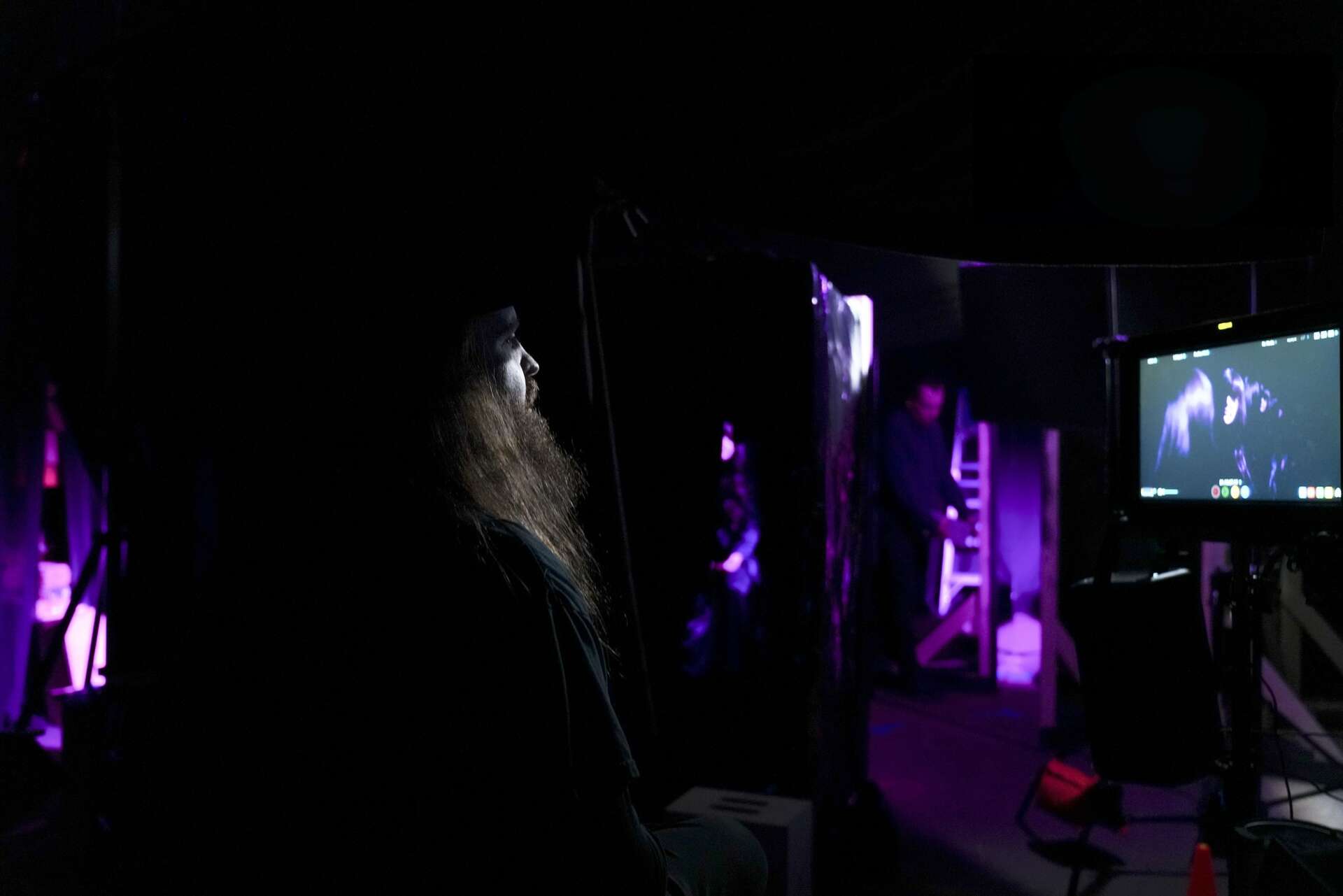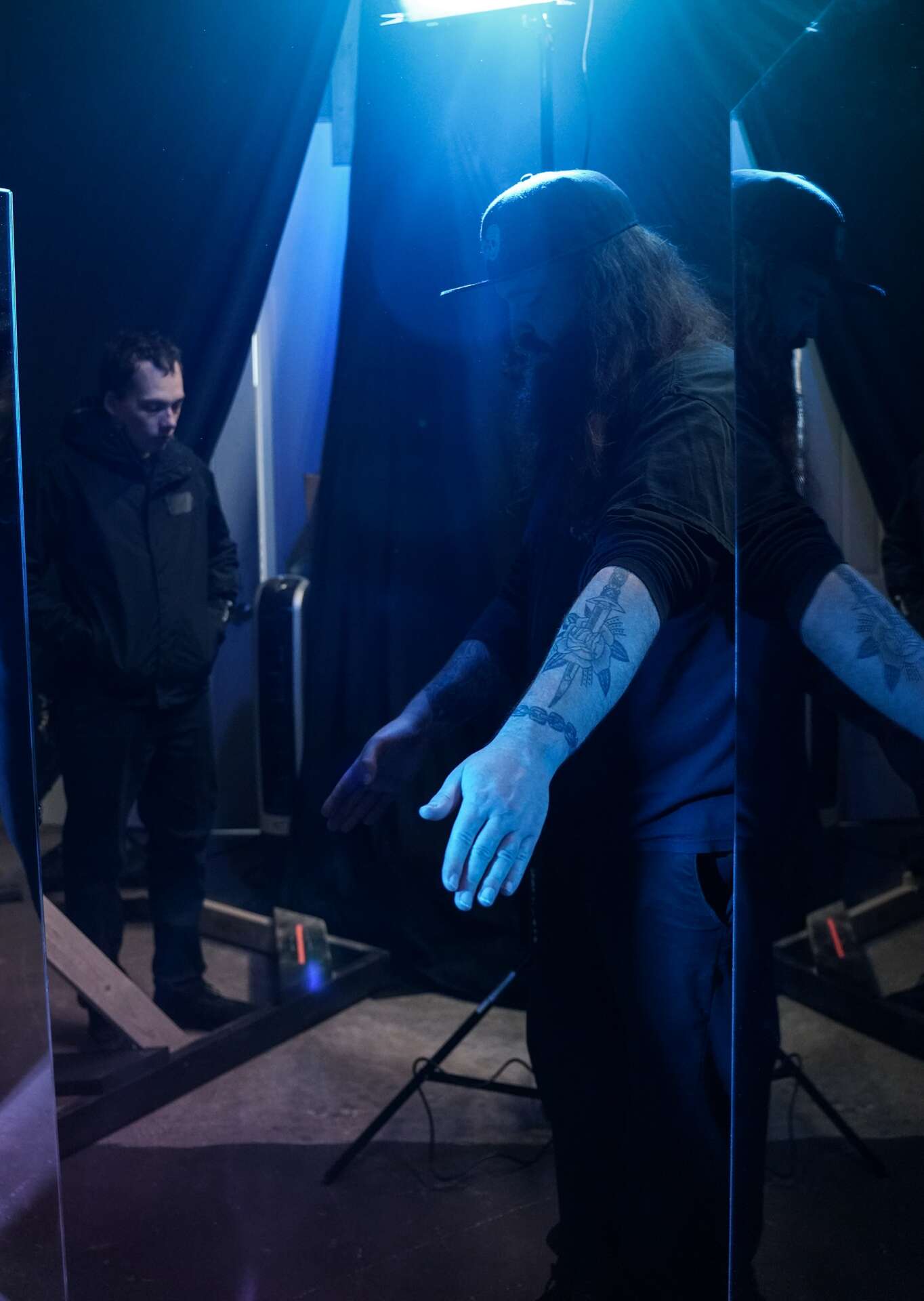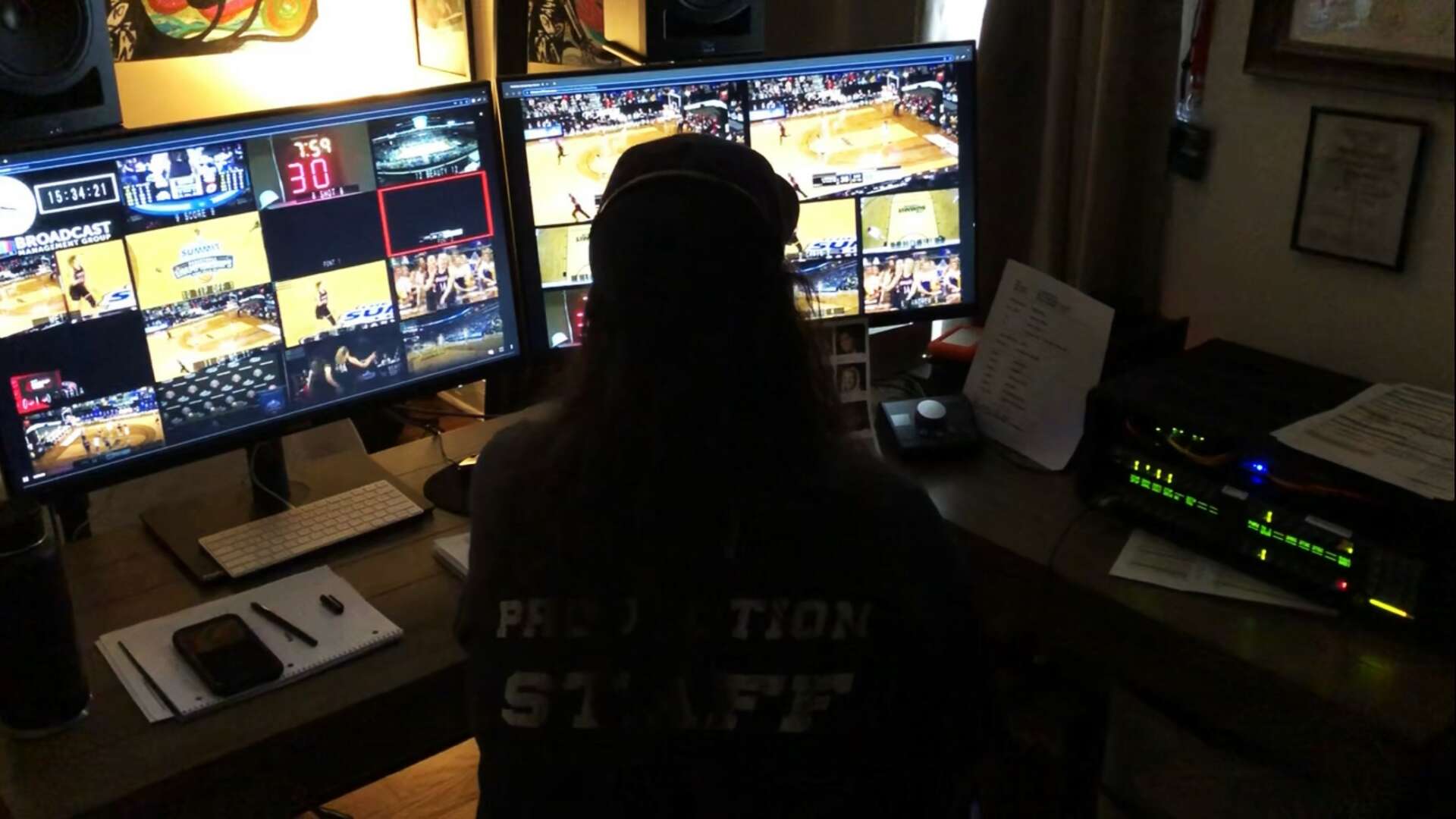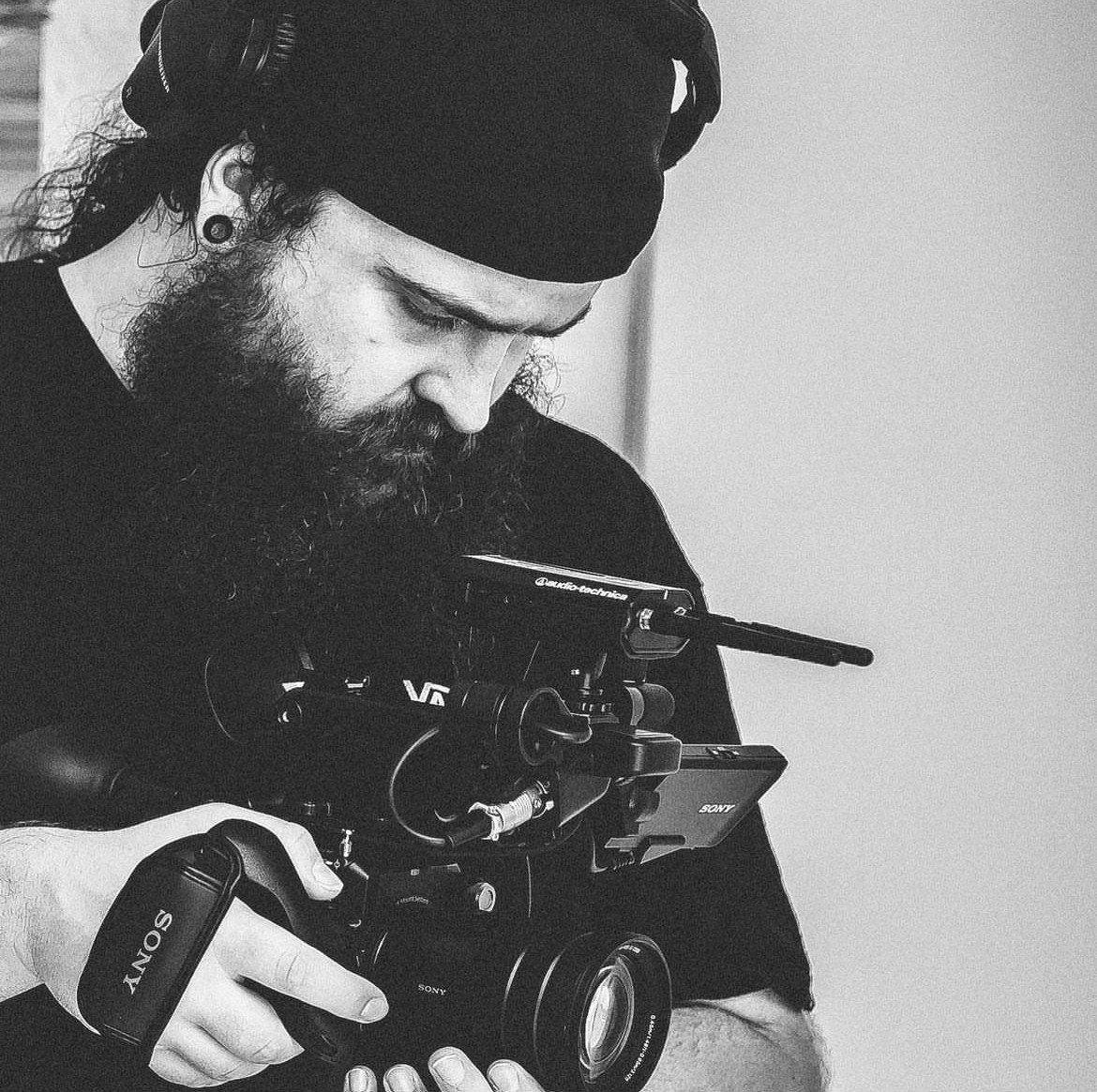Alright – so today we’ve got the honor of introducing you to Trey Morrow. We think you’ll enjoy our conversation, we’ve shared it below.
Trey, looking forward to hearing all of your stories today. What was the most important lesson/experience you had in a job that has helped you in your professional career?
Nearly a decade ago now, I had a full-time job as the Director of Athletic Video Services at a university.
I crewed, directed, and TD’d all of the ESPN3 broadcasts and after a certain point started giving star students the opportunity to join the front row and produce.
Relinquishing control to students was very tough for me because I cared so much about each and every show. I was constantly “backseat producing” by constantly questioning them during the show and often times overriding their decisions.
One day, one of the students finally said “who is producing this show? You or me?”
Whoa.
After a few seconds of checking my ego, I said “you’re right” and I let him produce his way for the rest of the game. Guess what? He did fine.
After that show, I reflected and realized that a potential small dip in quality for shows with new producers was a small price to pay in return for giving them an opportunity to make mistakes and learn from them. We could talk after the broadcast about what could have been better instead of me constantly questioning them during the game. This was the better solution for long-term success not only for our shows, but the overall growth of my students who would one day have to flap their wings without me there.
This student turned out to be an amazing producer once I got out of the way and is still having success in the industry today.
This moment forever changed how I view being a leader and how I view mentorship. It’s a story I’ve told to other people in the industry as well as people outside of it because it’s a lesson that can be applied to many aspects of life.
Now that I freelance full-time as a director, I take this way of thinking to each place I go and have been blessed with the opportunity to mentor many students and newbies over the years. Of course I continue to learn from them, as well.
Trust your team. Let them make mistakes. Help them grow.
To that student who is now a colleague: thank you.

Great, appreciate you sharing that with us. Before we ask you to share more of your insights, can you take a moment to introduce yourself and how you got to where you are today to our readers.
Growing up, my mom always had her cameras out taking photos and videos of my sister and me.
Sometimes we would make movies using figurines as the characters or would put together skits. Sometimes I would take over my mom’s video camera at family gatherings and narrate as I filmed.
These moments are likely what started my interest in film and storytelling.
In elementary school, I loved sports and played football, basketball, and baseball. I was also cast in the lead roles for the Christmas plays which eventually turned into being very involved in theatre in high school, appearing in everything from Shakespeare to Broadway Musicals.
During my teenage years, I also got really into music. My favorite thing to do was to go over to my best friend’s house where he would play guitar or drums while I played bass.
One year for Christmas, my mom bought me a digital photo camera and a small camcorder. I would take both of these and shoot my favorite local band every time they played in the area.
During college, I studied theatre and was in a few plays and musicals. I was also in a metal band that had a bit of success locally and regionally. After the band broke up, I was looking for my next chapter. I remembered being in a music video while in the band and thought that could be a cool profession. A friend told me about the digital media lab on campus and I began renting cameras and learning how to edit by shooting music videos for my friends.
Around that same time, being a broke college student, I also needed money. The same friend that told me about the media lab told me about a job on campus for the video production crew in athletics. I was hired and began operating camera for live broadcasts.
Fast forward to now and I’ve directed live broadcasts on ESPN, ESPN2, ESPN-U, SEC Network, ACC Network, and more and continue to direct live sports broadcasts for a living.
The other part of my profession is video creation where I have directed and produced music videos, documentaries, promos, commercials, and more.
I am so thankful that I make my living being involved with things I have always loved like storytelling, music, and sports. When I was a kid making home movies with my mom and sister, I never thought I would one day get paid be a filmmaker. When I suited up for my first flag football game, I never thought I would one day direct live broadcasts on national television showcasing some of the world’s top collegiate talent.
I am very blessed and fortunate to have had such support in my life from friends, family, and colleagues.

What’s been the most effective strategy for growing your clientele?
I think the most effective strategy I’ve had for business is being myself and being honest.
For four years after graduating college, I had full-time jobs where I had to work on whatever was given to me and often had to do my work someone else’s way.
Quitting my job to work for myself is one of the scariest and riskiest things I’ve ever done. It’s also pushed me to do things that I never knew I could. It has opened up opportunities I never would have had otherwise. Charging what I think I’m worth has also allowed me to have more time off to do things that are important to me, which keeps me fresh in my work instead of feeling like I’m forced to do it. This has worked wonders for my mental health, my creativity, and my sense of self.
Staying true to myself and really only taking jobs that I want is also scary and risky, but I think it’s crucial. By doing this, I am able to put out top-notch work because I care about the work I am doing. I surround myself with people I want to be around and the right clients are drawn to me. If you do work you don’t want to do, more of it will come your way until you find yourself in a trap.

Can you talk to us about how your funded your business?
When I started this business, I had no business experience and I had no money to start it.
What I did have was a drive to quit my full-time job, a drive to move back home closer to my family, a drive to make my dreams happen, and a lot of support.
I put in a long notice at my full-time job so that they could prepare to replace me, but also so that I could have a couple of months to look for clients while I still had a paycheck without having to be secretive.
I had no idea how much money I would be making so I knew I had to keep my monthly bills as low as possible. I had always been a renter, but decided to buy a house with my partner because it would be a lower monthly payment. My paid-off car crapped out on me after I put in my notice at work. Normally I would only buy a used car, but I found a new car that had lower monthly payments. I knew I needed something reliable because I would have to drive far to get to my clients. I went ahead and made the purchase while I still technically had a job and would qualify.
For my live TV gigs, I had practically no overhead so I focused on that side of what I do more. I just needed to book the gigs and fill up my gas tank to get there.
For my video creation gigs, I focused on editing since I already had a computer but didn’t have a camera, lights, etc. When I got hired to produce or direct a project, I would subcontract someone with their own gear or rent gear. It cut into the profits, but no overhead.
Basically I scratched, I clawed, I risked, and I somehow made it work.
Contact Info:
- Website: TreyMorrow.com
- Instagram: @VideoTrey
- Linkedin: https://www.linkedin.com/in/treymorrow
Image Credits
Brian Auburn Smith Ewelina Chmurska-Baty


